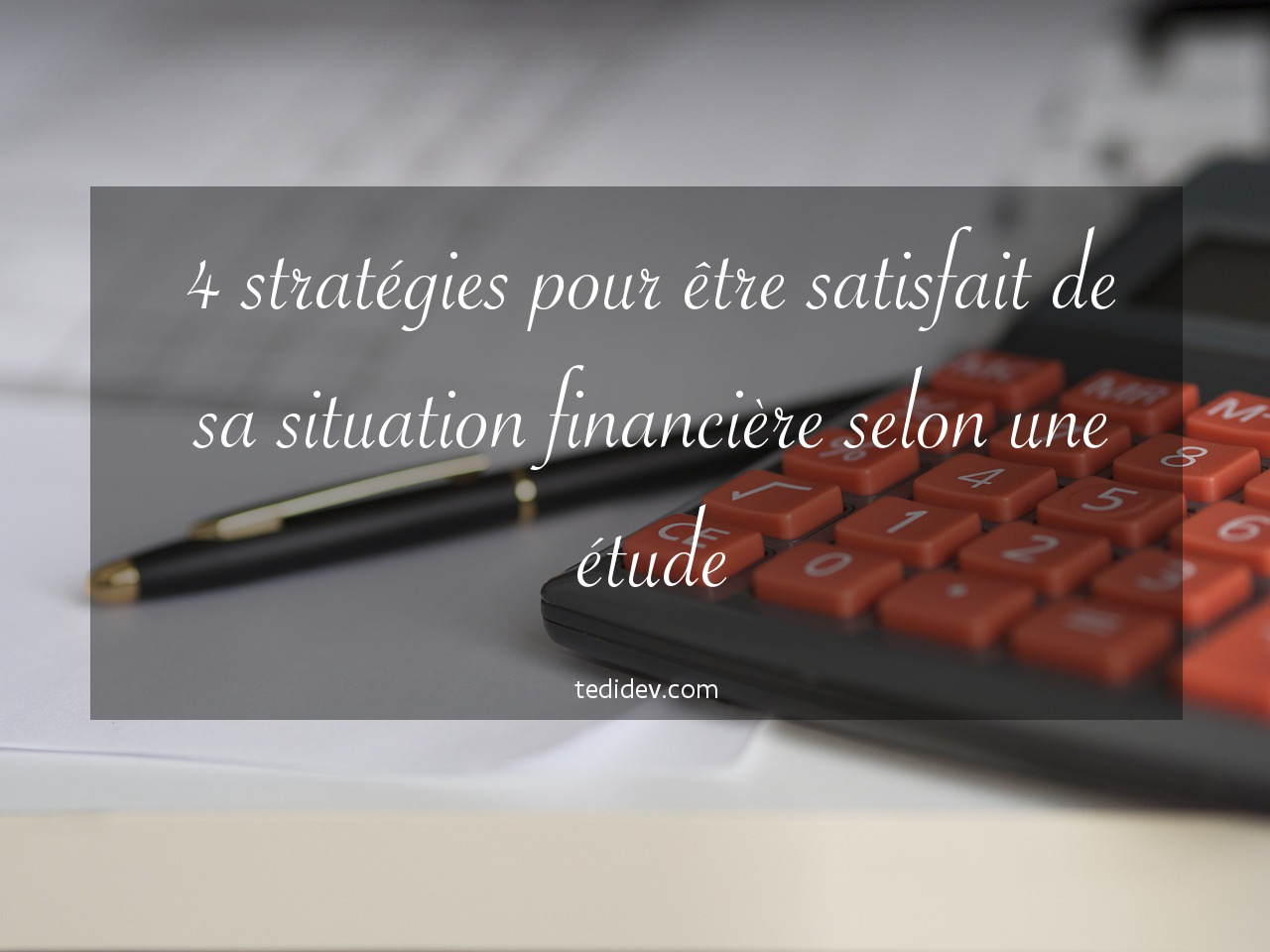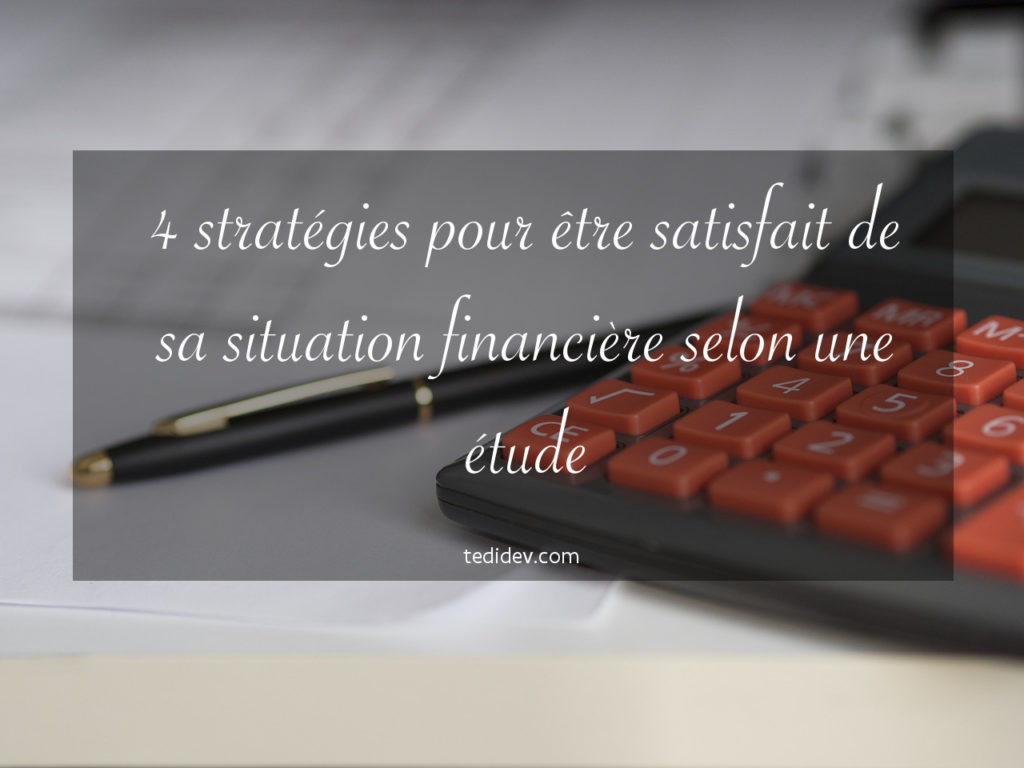Pour atteindre une grande satisfaction par rapport à sa situation financière, quatre étapes émergent des études en psychologie, estime la journaliste Rhea Wessel dans le Wall Street Journal
Ce que font 11 personnes exceptionnelles pendant leur weekend
10 raisons pour lesquelles, certaines personnes ne réussissent jamais
1- Dépenser en conformité avec ses valeurs
Comprendre ses valeurs et s’assurer que ses dépenses aident à les vivre est un pas vers la satisfaction financière. Ces valeurs peuvent être de passer plus de temps avec sa famille ou de prendre soin des animaux. On peut aussi décider de prendre du temps d’exercer une activité sportives tous les jours, ou de magner sainement.
Selon la psychologue Kathleen Gurney, auteur de “Your Money Personality What It Is and How You Can Profit From It”: “Le bonheur a moins à voir avec le montant d’argent qu’on possède, mais plus à voir avec la façon dont on l’utilise “. Les gens qui se disent satisfaits de leur situation financière, dit-elle, remettent constamment en question leurs comportements par rapport à l’argent. En plus de résister aux achats impulsifs, ils sont attentifs à ce qu’ils obtiennent par dépense: “Qu’est-ce que je fais avec ce que je gagne ? Est-ce que ça a du sens?”.
2- Poursuivre des buts intrinsèques
Selon le psychologue Richard Ryan de l’Université de Rochester (New York), les gens qui poursuivent des buts extrinsèques tels que l’argent, l’image et la gloire sont moins heureux que ceux qui se concentrent sur des buts satisfaisants en soi. Ils définissent eux-mêmes, indépendamment du jugement que la société peut en avoir ce qui les rende heureux. Ces personnes dit-il, ont dissocié leur sentiment de valeur personnelle des biens matériels et de la reconnaissance.
3- Définir une bonne vie par des mesures non matérielles
Il s’agit de définir des mesures rendant notre vie satisfaisante sans les possessions matérielles. La définition de ce qui, dans sa vie, rend heureux et donne un sentiment d’accomplissement permet de faire des choix qui favorisent cette satisfaction globale. Avant toute dépense se demander: Qu’est-ce que cela m’apportera? Cette question n’est pas anodine car l’argent coûte cher en temps et en énergie alors que ces derniers peuvent être consacrés à d’autres aspects importants de notre vie.
4- Prendre le contrôle de son temps et de son argent
La journaliste donne l’exemple de deux personnes dont les cheminements sur plusieurs années ont conduit à réduire considérablement leurs dépenses afin de pouvoir mieux choisir leur travail et le temps qu’ils y consacrent. Ils font, résume-t-elle, des choix plus conscients sur quoi posséder car ils ont une compréhension des coûts implicites qui viennent avec les possessions. “Si vous gaspillez votre argent, vous gaspillez votre propre temps”, souligne l’un deux.
Daniel Kahneman, Prix Nobel d’économie pour ses travaux en économie comportementale conseille :
“Essayez de contrôler la façon dont vous dépensez votre temps car il est clair que, en termes de bonheur affectif, passer du temps avec les gens que vous aimez et à des activités que vous aimez est la clé. Le meilleur conseil pratique est d’organiser votre vie de telle sorte que vous obtiendrez ces sources de plaisir”.
source: http://www.psychomedia.qc.ca

